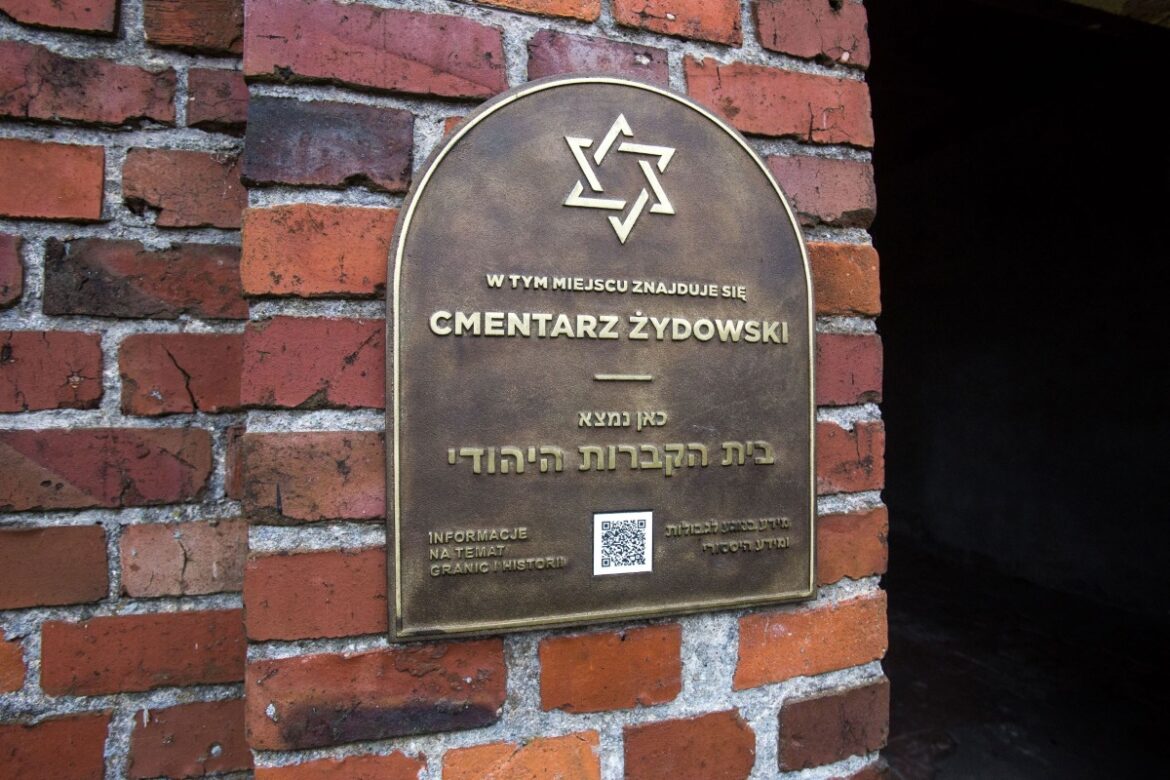On the initiative of the Ministry of Culture and National Heritage, the POLIN Museum of the History of Polish Jews and the National Heritage Institute, together with local partners, are organising the third ceremonial presentations of the markings of Jewish cemeteries. The new markers will be displayed in 7 provinces: Malopolskie, Śląskie, Kujawsko-Pomorskie, Świętokrzyskie, Warmińsko-Mazurskie, Dolnośląskie and Lubuskie. The inauguration of the presentation will take place on 8 November 2023 at the Jewish cemetery in Dąbrowa Tarnowska.
During the ceremony, signs of information boards located in Jewish cemeteries will be presented. The plaques, shaped like a matzeva, will feature a modern form of commemoration next to an informative inscription in the form of a QR sign, referring to the broader characteristics of the necropolis, which is posted on the zabytek.pl portal.
‘In each locality, the ceremonies will be accompanied by a rich educational programme addressed to the local community, which will allow participants to learn a different aspect of the history of their locality and broaden their knowledge of the traditions associated with Jewish cemeteries’, informs the POLIN Museum of the History of Polish Jews.
Primary schools participating in the programme will have the opportunity to use the educational kit “Museum in a Box. Malki Town”, which contains replicas of objects and archival photographs from the POLIN Museum’s collection, allowing an educational board game to be played in grades 4-6.
By 2024, new signage of Jewish cemeteries will be installed in each of the 16 provinces in Poland and educational workshops aimed at children and young people will be carried out.
The presentation of the markings of the cemeteries is the result of cooperation between the Museum of the History of Polish Jews POLIN and the National Heritage Institute. The cemeteries have been commemorated within the framework of the ‘Marking of Jewish Cemeteries in the Republic of Poland’ programme implemented by the National Heritage Institute and financed by the Ministry of Culture and National Heritage.
Adrian Andrzejewski





